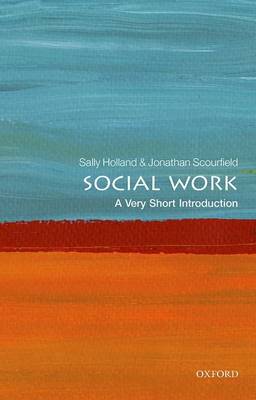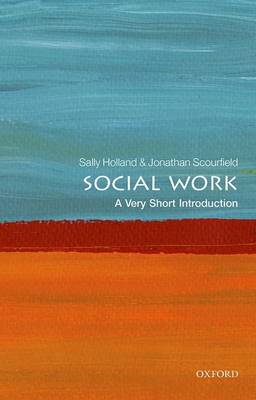
- Afhalen na 1 uur in een winkel met voorraad
- Gratis thuislevering in België vanaf € 30
- Ruim aanbod met 7 miljoen producten
- Afhalen na 1 uur in een winkel met voorraad
- Gratis thuislevering in België vanaf € 30
- Ruim aanbod met 7 miljoen producten
Zoeken
Omschrijving
Social workers spend their time trying to ease social suffering. They encounter the extreme casualties of social inequality: the victims of poverty, illness, addiction, and abuse; they work with abusers and offenders; and operate in the space between the state and the poor or marginalized. Social work is replete with vivid human stories: the troubled teenage boy who cannot settle in a foster home; the frail older woman who is desperate for social contact; the community seeking a way to tackle gang violence; the sex offender leaving prison; and the disputed territory of international adoption. Social work therefore holds a fundamental importance throughout the modern world. In this Very Short Introduction, Sally Holland and Jonathan Scourfield explain what social work is and look at its rich historical development. Reflecting international human stories of social problems and social work relationships, as well as the philosophies behind the practice and the evidence about what works throughout the world, they look at the various definitions, history, and debates about purpose and effectiveness, theory, and methods. Including wide ranging examples of social work practice around the world and within particular population groups, they reflect the international variation of social work theory and practice, as well as highlighting all of the main controversies and debates. ABOUT THE SERIES:
The Very Short Introductions series from Oxford University Press contains hundreds of titles in almost every subject area. These pocket-sized books are the perfect way to get ahead in a new subject quickly. Our expert authors combine facts, analysis, perspective, new ideas, and enthusiasm to make interesting and challenging topics highly readable.
The Very Short Introductions series from Oxford University Press contains hundreds of titles in almost every subject area. These pocket-sized books are the perfect way to get ahead in a new subject quickly. Our expert authors combine facts, analysis, perspective, new ideas, and enthusiasm to make interesting and challenging topics highly readable.
Specificaties
Betrokkenen
- Auteur(s):
- Uitgeverij:
Inhoud
- Aantal bladzijden:
- 144
- Taal:
- Engels
- Reeks:
Eigenschappen
- Productcode (EAN):
- 9780198708452
- Verschijningsdatum:
- 1/08/2015
- Uitvoering:
- Paperback
- Formaat:
- Trade paperback (VS)
- Afmetingen:
- 104 mm x 178 mm
- Gewicht:
- 122 g

Alleen bij Standaard Boekhandel
+ 27 punten op je klantenkaart van Standaard Boekhandel
Beoordelingen
We publiceren alleen reviews die voldoen aan de voorwaarden voor reviews. Bekijk onze voorwaarden voor reviews.











